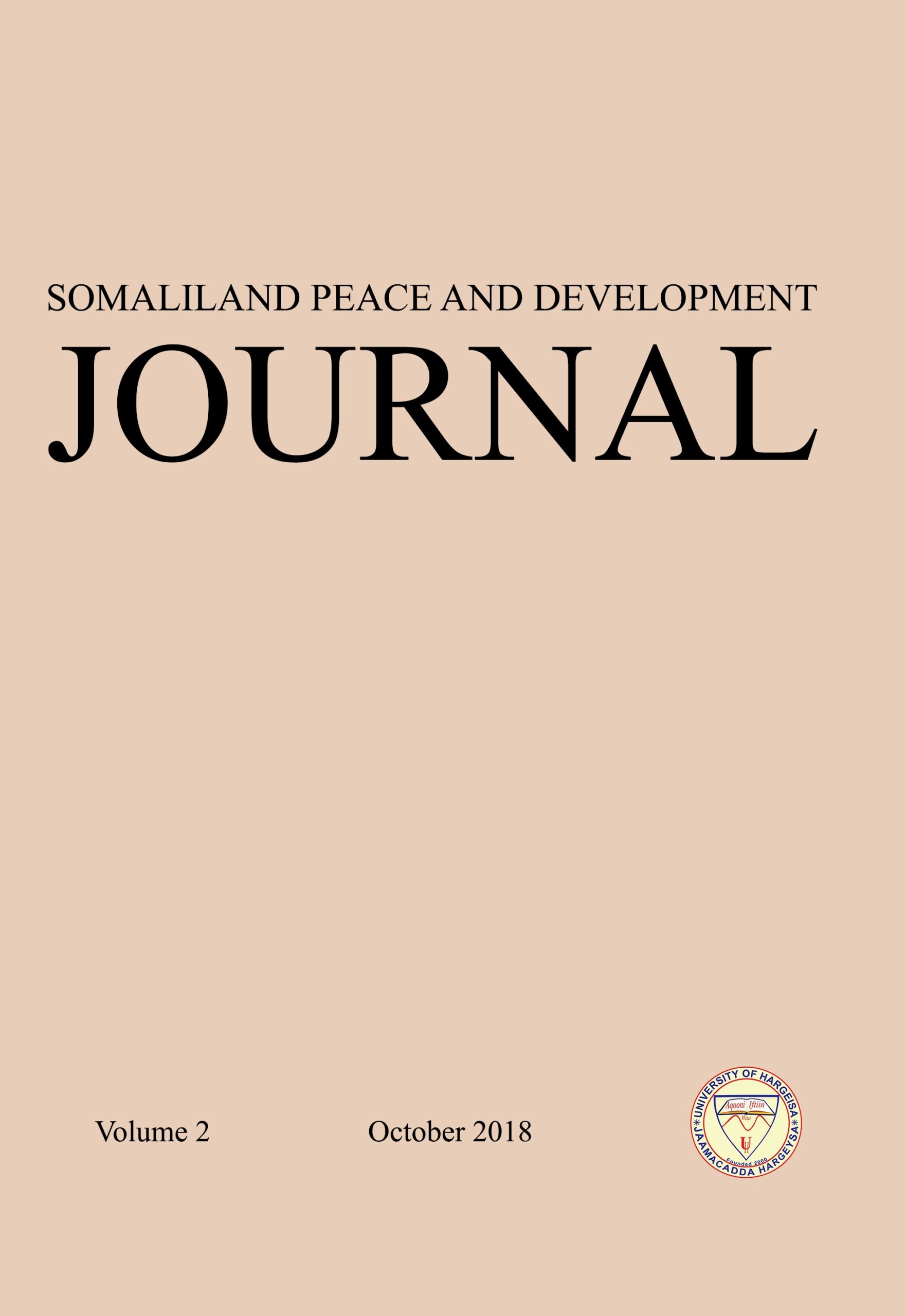The Somaliland Peace and Development Journal (SPDJ) is an annual peer-reviewed academic journal published by the Institute for Peace and Conflict Studies of the University of Hargeisa. The journal’s core mission is to enhance understanding of peace, conflict management, and development through research and publication.
In its holistic multidisciplinary approach to research, the journal aims to increase the capacity of people to analyze and better understand the fundamental causes of social, economic, political, and environmental challenges through the facilitation of healthy and intellectual discussion.
Towards this goal, the journal foster the dialogue between academics, practitioners, and policymakers inside and outside of Somaliland on several issues related to peace, security, and development. Furthermore, the journal serves as a vehicle for broader dissemination of research findings to inform policymaking.
Towards this holistic objective, the journal focuses on the following thematic areas: conflict and development, political violence, violent extremism, governance and democracy in post-conflict settings, peace, conflict, and education, migration and climate change, and security.
The land administration in urban areas in Somaliland remains weak following the war with the Somalia’s military regime which ravaged the major cities and the subsequent breakup of the responsible institutions for land governorship in 1988–1991. ertainly, the relation between land-use and land ownership, and the redistribution of land ownership in urban areas has largely disappeared from the political debate over the past twenty plus years in Somaliland This study has shown that the current land disputes between Somaliland landlords in urban areas illustrate the type of problems which arise due to the skyrocketing prices of land selling among citizens on one hand, and the capacity of the state institutions to officially sanction such practices by which is not present on the other....
This article examines the traditional leaders in Somaliland and their role in building peace and the state. The study questions if the traditional system existing in Somaliland is a tool for conflict resolution as used before or a dilemma on governance and endeavors to strengthen state institutions to provide social services and security to the citizens in general. The study doesn’t undermine the positive role of the traditional leaders within the Somali society has been organized for centuries in clan line structure in which every and each clan has its own leader, literally called ‘Chief Aqil’ and basically fabricates the bonds between the adjacent and neighboring clans. The study employed both primary and secondary data in which were analyzed qualitatively...
This study examines the proliferation of the traditional leaders and the political, social and economic changes this brings to Somaliland people. It analyzes the historical and the changing roles of the traditional leaders in the contemporary era. The study argues that the role of the traditional leaders takes a new style of leadership and the new forms of governance such as democracy, elections and multi-party systems influence their decisions. Although, the traditional leaders still keep their traditional delivery of maintaining peace and conflict resolution among the community, but by taking more political roles they need careful collaboration and demarcation in their borderlines with the government....
When Somaliland reclaimed its sovereignty in 1991, it took steps to have vibrant media, which took part in state and peace building efforts. A strong and vibrant media sector is seen as an important resource for national development and social demobilization efforts. Indeed, though considerable progress has been achieved in the expansion of media in Somaliland, yet significant challenges to media both state-owned and independent remain to be addressed. In recent years, there has been growing criticisms of the conduct of the mass media in Somaliland. This criticism is multifaceted – economic, political, and ethical – and is grounded mostly in the facts concerning the conduct of the media. In nearly twenty years plus, the media have enjoyed editorial independence; self-censoring, and their first and foremost responsibility remained in avoiding public and private disappointments...
Civil society organizations in Somaliland have mushroomed since 1991 and have made an important contribution to the relief and rehabilitation efforts throughout the country, particularly in the provision of social services and the empowerment of disadvantaged groups in the society. Many of these civil society organizations have contributed significantly to improving the lives of a large number of people, particularly women, children and other vulnerable groups by supporting a range of essential services that the state has failed to provide. Presently, many Somaliland civil society organizations are engaged in democratization and good governance issues. However, it is rare to witness a civic organization that is involved in political activism, or lobbying for legislative reform...
Somaliland, like any other Sub-Saharan Africa remains amongst the poorest nations in the world with a Gross Domestic Product per capita of $499.8 according to the World Bank ahead of Burundi, Democratic Republic of the Congo and Niger. The purpose of this study is aimed to analyze urban poverty in Somaliland. Both primary and secondary data were used; the primary data were obtained from field activity results of a questionnaire distributed to 97 randomly selected respondents in the study area. The secondary data were taken from different published assessments and reports from reputable global institutions...
Youth represent a very vital organ in any society. They are not only the future of Somaliland, but also a major stakeholder and useful resource in the nation-building. However, it has been suggested that a large rate of youth unemployment makes more countries unstable in general, and thus more prone to armed conflict. The main purpose of this article is to analyze the nexus between youth unemployment and state security in Somaliland. Both primary and secondary data are used in the study. The study is purely qualitative and generated the required information in order to achieve its objectives...


Connect with like-minded individuals, establish contacts with scholars, and become part of a thriving academic community.
